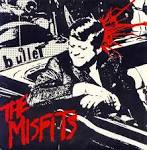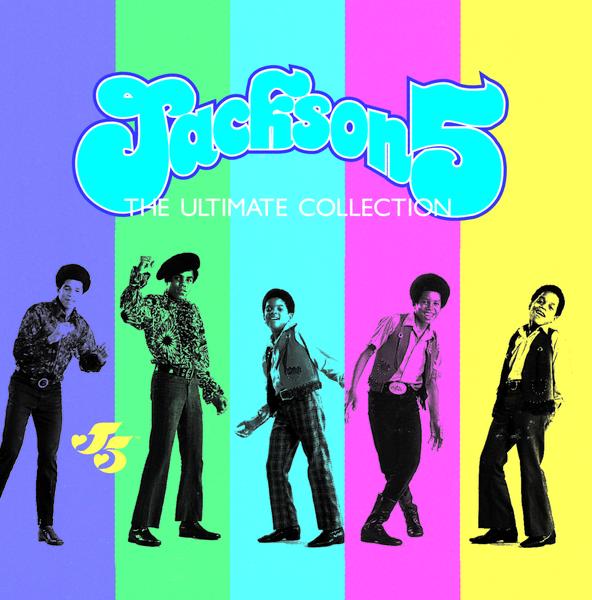2025-01-25
Glenn Miller: Examining the Positive and Negative Aspects of his Iconic Legacy
Glenn Miller was one of the greatest American jazz composers and bandleaders ever to grace the stage. Hailed as an innovator by his peers, he revolutionized big band music in the 1930's and 1940s with some of the most iconic compositions in popular music history. While praised for his influence on American culture, there were drawbacks to Miller’s own musical output. In this blog post, we will examine both the positive and negative aspects of Glenn Miller’s iconic legacy - exploring why he is still remembered fondly even over 70 years after his death!
When it comes to jazz music, there are few names as well-known and celebrated as Glenn Miller. A true innovator of his time, Miller brought big band music to the forefront of American culture in the 1930s and 40s with his iconic compositions and captivating performances. Even today, more than seven decades after his untimely death, Miller’s music continues to be celebrated and remembered fondly by music listeners all over the world. But as with any legacy, there are both positive and negative aspects to Miller’s impact on American culture and music. In this blog post, we’ll explore both sides and gain a deeper understanding of why Miller is still such an important figure in the world of jazz music.
The Positive:
One of the most significant positive contributions that Miller made to jazz music was his innovative approach to sound. In his compositions, Miller focused heavily on instrumental harmony, creating a unique sound that was both soothing and uplifting at the same time. In particular, his brass section was an essential part of his distinctive sound, utilizing precise arrangements that made his music truly stand out. This approach to jazz music was so groundbreaking that Miller is often credited with revolutionizing the genre entirely, inspiring countless musicians who came after him to innovate and experiment in their own ways.
Another significant positive aspect of Miller’s legacy was his dedication to popularizing jazz music. During his time, jazz was still somewhat of a niche genre, with only a small audience of music listeners who were familiar with it. But Miller saw the potential in jazz music and made it his mission to bring it to the masses. He achieved this through his popular performances on radio and later on film, where he would often play introduced audience members to new songs and arrangements that they may not have heard before. This tireless work to spread the word about jazz music helped to make it a more popular genre and opened doors for countless other jazz musicians who followed in his footsteps.
The Negative:
However, as with any influential figure, Miller’s legacy was not entirely free from controversy. One of the most significant criticisms of Miller’s music during his time was his tendency to view jazz as a commodity rather than an art form. In particular, Miller was known for his focus on commercial success and his willingness to make compromises with his music in order to please a wider audience. Some purists in the jazz community saw this as selling out and felt that Miller’s music lacked the integrity and passion that defined true jazz music.
Another controversial aspect of Miller’s legacy was his affiliation with the military during World War II. Miller played a significant role in entertaining American troops overseas during the war, which undoubtedly raised morale for both soldiers and civilians back home. However, critics have also pointed out that Miller’s music and performances during this time were heavily censored, with lyrics and themes that aligned more with government propaganda than with artistic expression. Some have suggested that Miller’s wartime work amounts to a form of cultural imperialism, attempting to export American values and ideals to foreign countries through his music.
Despite the mixed reviews, it’s clear that Glenn Miller’s legacy has had an enduring impact on jazz music and popular culture. His innovative approach to sound, dedication to spreading the word about jazz music, and tireless work as a bandleader and performer have inspired countless others in the industry and continue to captivate audiences today. While there were certainly criticisms of his approach to jazz music and his wartime activities, it’s important to remember Miller’s contributions to American culture as a whole and appreciate the impact he’s had on generations of music lovers around the world.
When it comes to jazz music, there are few names as well-known and celebrated as Glenn Miller. A true innovator of his time, Miller brought big band music to the forefront of American culture in the 1930s and 40s with his iconic compositions and captivating performances. Even today, more than seven decades after his untimely death, Miller’s music continues to be celebrated and remembered fondly by music listeners all over the world. But as with any legacy, there are both positive and negative aspects to Miller’s impact on American culture and music. In this blog post, we’ll explore both sides and gain a deeper understanding of why Miller is still such an important figure in the world of jazz music.
The Positive:
One of the most significant positive contributions that Miller made to jazz music was his innovative approach to sound. In his compositions, Miller focused heavily on instrumental harmony, creating a unique sound that was both soothing and uplifting at the same time. In particular, his brass section was an essential part of his distinctive sound, utilizing precise arrangements that made his music truly stand out. This approach to jazz music was so groundbreaking that Miller is often credited with revolutionizing the genre entirely, inspiring countless musicians who came after him to innovate and experiment in their own ways.
Another significant positive aspect of Miller’s legacy was his dedication to popularizing jazz music. During his time, jazz was still somewhat of a niche genre, with only a small audience of music listeners who were familiar with it. But Miller saw the potential in jazz music and made it his mission to bring it to the masses. He achieved this through his popular performances on radio and later on film, where he would often play introduced audience members to new songs and arrangements that they may not have heard before. This tireless work to spread the word about jazz music helped to make it a more popular genre and opened doors for countless other jazz musicians who followed in his footsteps.
The Negative:
However, as with any influential figure, Miller’s legacy was not entirely free from controversy. One of the most significant criticisms of Miller’s music during his time was his tendency to view jazz as a commodity rather than an art form. In particular, Miller was known for his focus on commercial success and his willingness to make compromises with his music in order to please a wider audience. Some purists in the jazz community saw this as selling out and felt that Miller’s music lacked the integrity and passion that defined true jazz music.
Another controversial aspect of Miller’s legacy was his affiliation with the military during World War II. Miller played a significant role in entertaining American troops overseas during the war, which undoubtedly raised morale for both soldiers and civilians back home. However, critics have also pointed out that Miller’s music and performances during this time were heavily censored, with lyrics and themes that aligned more with government propaganda than with artistic expression. Some have suggested that Miller’s wartime work amounts to a form of cultural imperialism, attempting to export American values and ideals to foreign countries through his music.
Despite the mixed reviews, it’s clear that Glenn Miller’s legacy has had an enduring impact on jazz music and popular culture. His innovative approach to sound, dedication to spreading the word about jazz music, and tireless work as a bandleader and performer have inspired countless others in the industry and continue to captivate audiences today. While there were certainly criticisms of his approach to jazz music and his wartime activities, it’s important to remember Miller’s contributions to American culture as a whole and appreciate the impact he’s had on generations of music lovers around the world.
Tag: Glenn Miller, music artist, best songs, artist career
2022-01-01
Analyzing the Complex Nature of Nelly's Music: Both Praise and Controversy
Nelly is a highly successful musician with a career that now spans two decades, but despite his chart-topping albums and unforgettable singles, he remains a controversial figure. With polarizing lyrics that have caused outrage over certain topics, it’s not easy to come up with something objectively good and something objectively bad to say about him when discussing the overall impact of his music...read more
2022-01-01
The Misfits: Punk Rock Legends or Sell-Outs?
The Misfits have been one of the most influential bands in punk rock history, inspiring countless other musical artists with their distinct style and powerful, often dark, lyrical content. However, the iconic horror-punk sound heard on albums like Walk Among Us isn't only widely praised – it has also become a point of contention among fans and critics alike...read more
2022-01-01
Examining the Legacy of The Jackson 5: A Look at Their Music and Criticisms
The Jackson 5 may be one of the most revered groups in music history, but despite their stacked resume and iconic song catalog, they have their share of both critics and fans. It's hard to deny that The Jackson 5 brought an impressive mix of energy and innovation to the stage each time they performed! From classic hits like 'I Want You Back' to funky grooves like 'ABC,' these five brothers were able to capture a range of emotions through their music...read more
2022-11-01
The Musical Biography of Steve Aoki: From Humble Beginnings to Global Fame
Steve Aoki is a name that is synonymous with the electronic dance music scene. This DJ, producer, and record label owner has been making waves in the music industry for over a decade...read more
2025-01-30
The Godsmack Debate: Have They Lost Their Edge or Are They Still Rocking Hard?
Godsmack is one of the most prominent and successful alternative metal bands, but they are not without criticism. Some argue that their sound and style have grown dull over time, becoming just another example of a heavy-metal band who once had promise and then regressed into a more commercial version of what they were originally known for...read more
SUGGESTED PLAYLISTS








